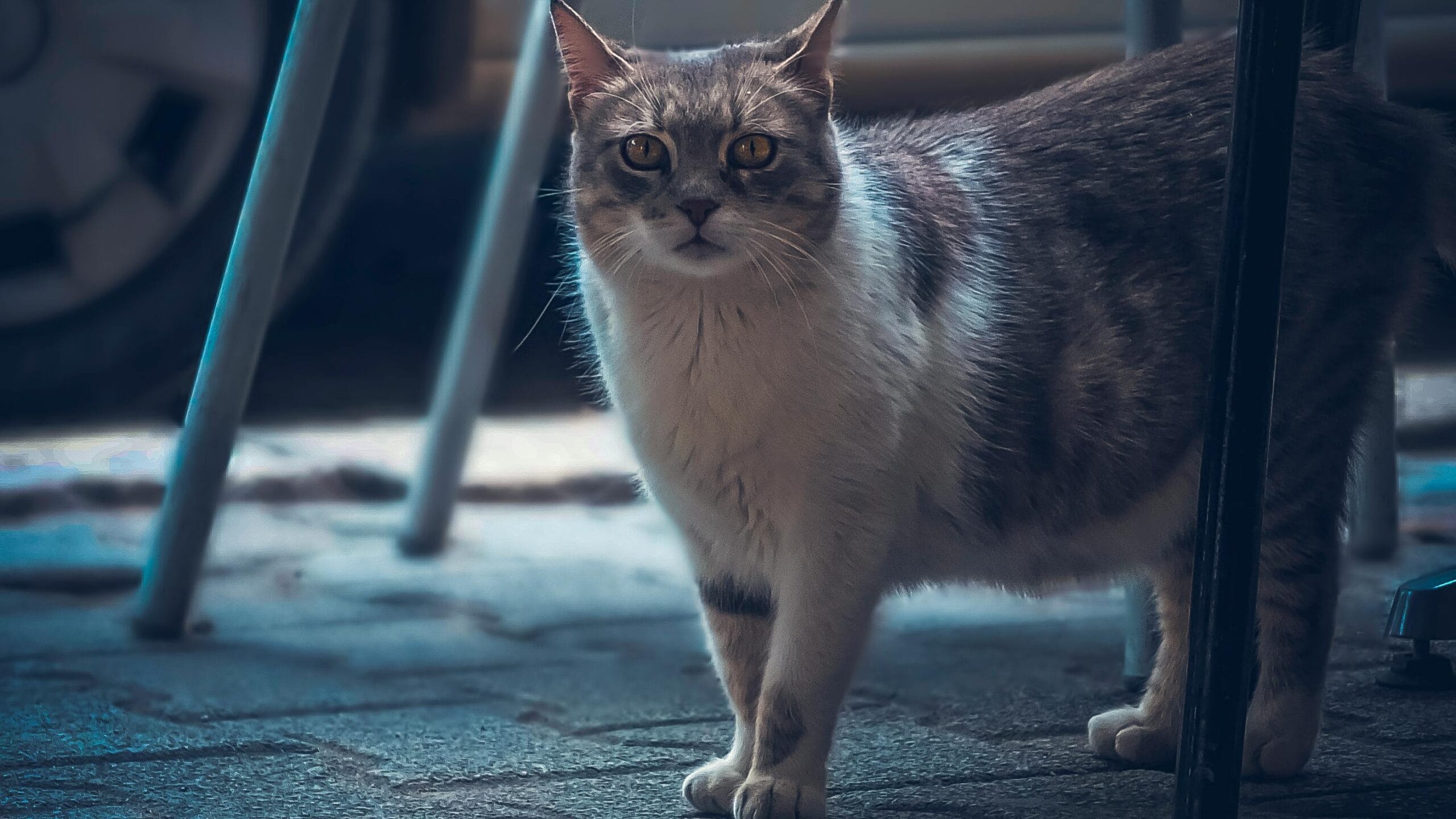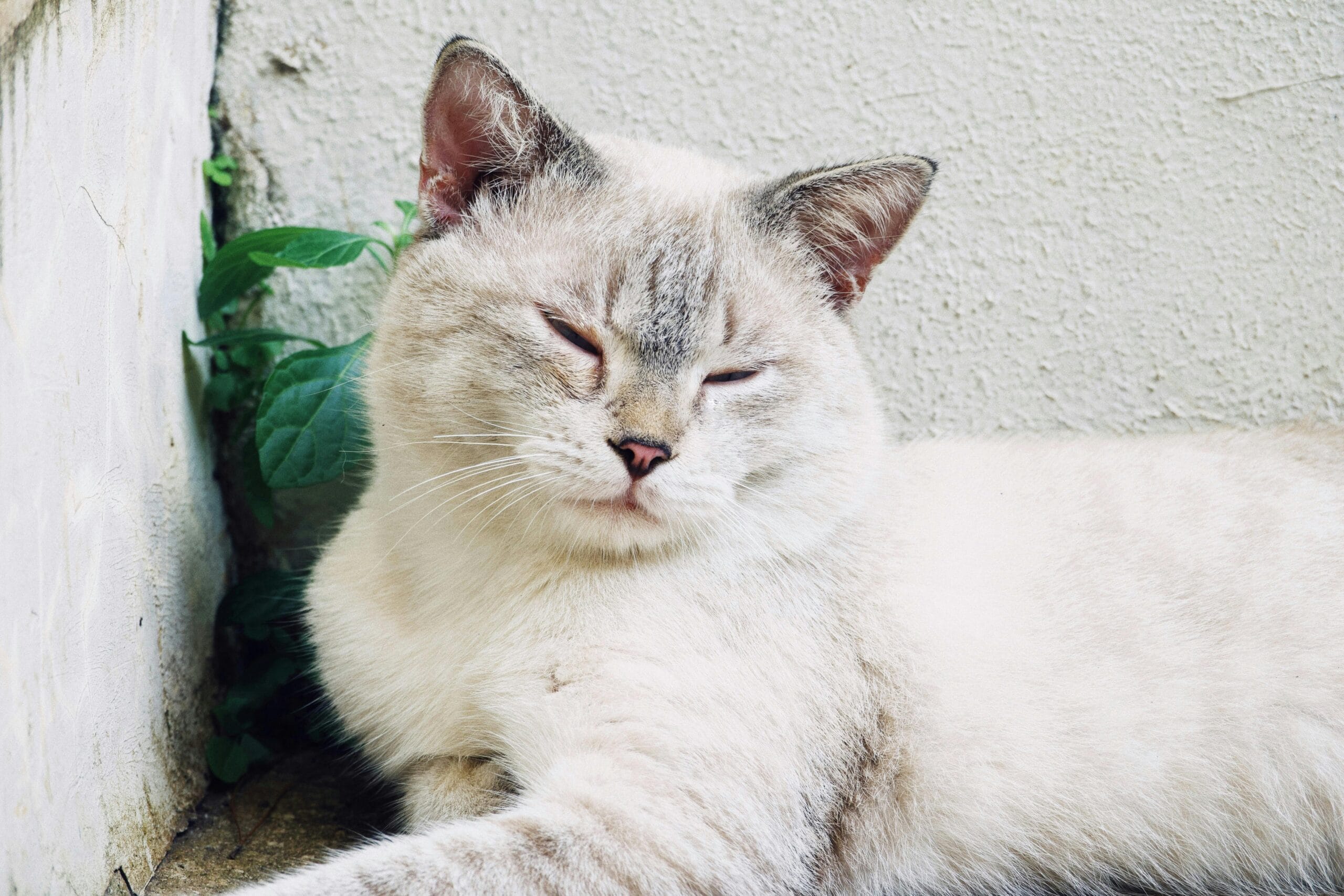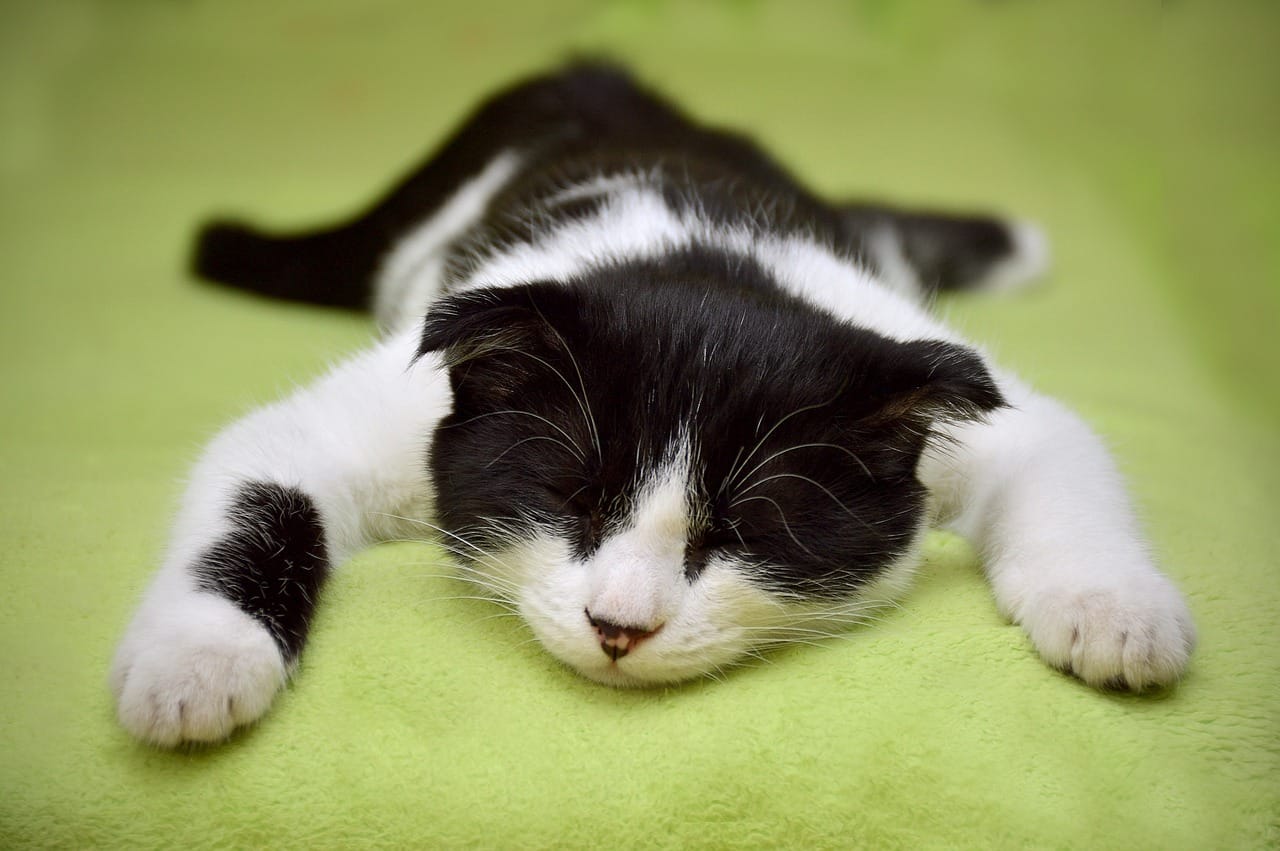How To Tell If A Kitten Is Blind ?

How To Tell If A Kitten Is Blind? Learn to spot blind kitten symptoms early! Discover key signs of kitten blindness & get expert advice on recognizing visual impairments in your feline friend. Help your kitten thrive!
How To Tell If A Kitten Is Blind: A Comprehensive Guide to Kitten Blindness Symptoms
Bringing a new kitten into your home is an incredibly rewarding experience. However, sometimes kittens can arrive with unforeseen health issues, including blindness. Understanding how to tell if a kitten is blind is crucial for providing the best possible care. Early detection of kitten blindness allows for prompt veterinary intervention and ensures your feline friend enjoys a happy and fulfilling life, despite their visual impairment. This comprehensive guide will explore the various blind kitten symptoms to help you identify whether your kitten might be blind or visually impaired.
Recognizing the Signs: Early Detection of Kitten Blindness
Recognizing the signs of kitten blindness early on is paramount. While some kittens are born blind due to genetic factors or congenital conditions, others might lose their sight later due to illness or injury. Being aware of the potential symptoms allows for timely intervention and potentially prevents further complications. Several tell-tale signs can indicate that your kitten is experiencing visual problems or is completely blind. These can range from subtle behavioral changes to more obvious physical manifestations. Let’s delve into the key indicators.
Behavioral Clues: How a Blind Kitten Acts
Often, behavioral changes are the first noticeable signs of kitten blindness. A blind kitten will rely heavily on other senses to navigate its surroundings. Observe your kitten’s behavior carefully for the following:
- Hesitation and bumping into objects: A kitten with impaired vision will often bump into walls, furniture, or other objects. This is a strong indicator that they are struggling to perceive their surroundings visually.
- Lack of response to visual stimuli: Unlike their sighted counterparts, a blind kitten might not respond to waving hands, moving toys, or sudden movements. They may not track moving objects with their eyes (or might not even appear to have any eye movement).
- Unusual head tilting or shaking: Some kittens with visual impairments may exhibit head tilting or shaking as they attempt to compensate for their poor vision. This is often an effort to use their remaining visual function more effectively.
- Increased reliance on other senses: Blind kittens will use their hearing and touch much more extensively than sighted kittens. They may rely heavily on sounds to locate objects and people. They might also explore their environment through touch and smell more frequently.
- Difficulty navigating familiar environments: Even in a familiar space, a blind kitten may demonstrate more hesitation or appear disoriented than a sighted kitten. They may take longer to find food or their litter box.
- Avoiding bright lights: While not exclusive to blind kittens, an unusual aversion to bright light can sometimes be a symptom, particularly if combined with other signs of impaired vision. This might be due to photophobia, which is often associated with some eye conditions.
It’s important to note that these behavioral signs aren’t always definitive proof of blindness. Some kittens might be simply clumsy, shy, or developing slower than others. However, if you notice multiple of these signs, it’s essential to seek veterinary advice.
Physical Examination: Assessing Your Kitten’s Eyes
In addition to behavioral observations, a physical examination of your kitten’s eyes is essential to diagnose blind kitten symptoms accurately. While you can perform a preliminary visual check, a veterinarian should always conduct a thorough eye exam.
- Pupil response: Observe if your kitten’s pupils react to light. A normal response involves constriction (narrowing) of the pupils in bright light and dilation (widening) in dim light. A lack of pupillary response suggests a potential vision problem.
- Eye appearance: Look for any abnormalities in the eyes, such as cloudy or opaque lenses (cataracts), unusual discharge, redness, or deformities. These physical signs might indicate underlying conditions affecting vision. A reputable veterinary source can provide more information on potential eye problems.
- Eye movement: Observe your kitten’s eye movements. Do their eyes move smoothly, or are they uncoordinated, drifting, or constantly flickering? Abnormal eye movements can suggest neurological or muscular problems affecting vision.
Remember, attempting to diagnose your kitten’s condition yourself is not recommended. A veterinary professional is equipped to perform a comprehensive eye exam, including specialized tests like ophthalmoscopy (examining the internal structures of the eye) to accurately determine the cause and extent of your kitten’s vision impairment. This could help identify if you have a blind kitten.
Causes of Kitten Blindness
Understanding the potential causes of kitten blindness helps in providing appropriate care and management. The causes can be broadly categorized into congenital (present at birth) and acquired (developing later in life) conditions.
Congenital Causes
Congenital causes of blindness are often genetic, meaning they are inherited from the parents. These can include:
- Congenital cataracts: These are opacities in the lens of the eye that are present at birth, obstructing the passage of light and significantly reducing vision.
- Retinal dysplasia: This is an abnormal development of the retina (the light-sensitive tissue at the back of the eye), leading to impaired vision or blindness.
- Microphthalmia: This is a condition where the eyes are abnormally small, which can severely impair vision or even result in blindness.
- Anophthalmia: This is the complete absence of one or both eyes at birth.
Acquired Causes
Acquired blindness can develop later in a kitten’s life due to various factors:
- Infections: Certain viral or bacterial infections, such as feline herpesvirus or toxoplasmosis, can damage the eyes and lead to vision loss.
- Trauma: Injuries to the eyes, such as scratches or penetrating wounds, can cause blindness.
- Glaucoma: This is a condition characterized by increased pressure within the eye, which can damage the optic nerve and lead to blindness if left untreated.
- Progressive retinal atrophy (PRA): This is a degenerative disease of the retina that progressively leads to vision loss and eventual blindness. It’s a hereditary condition, often manifesting later in life.
Providing Care for a Blind Kitten
Caring for a blind kitten requires patience, understanding, and a commitment to creating a safe and stimulating environment. While their vision is impaired, they can still live happy and fulfilling lives. Here are some key aspects of caring for a blind kitten:
- Safe environment: Remove potential hazards from your home, such as sharp objects, toxic substances, and easily breakable items. Secure loose wires and ensure the environment is stable and predictable to minimize the risk of injury. Consider using baby gates or barriers to restrict access to certain areas if needed.
- Consistent routine: Establish a consistent daily routine, including feeding, playtime, and litter box usage. This helps the kitten feel secure and know what to expect. Keep furniture in the same place to avoid disorientation.
- Sensory enrichment: Use the kitten’s remaining senses to create a rich and engaging environment. Provide toys that make sounds or have different textures. Use scent trails to help them locate their food and water bowls. You can also incorporate play sessions with familiar toys that encourage the use of their sense of touch.
- Patience and understanding: Remember that it takes time for a blind kitten to adjust to their environment. Be patient, understanding, and supportive. Avoid sudden movements or loud noises that might startle them.
- Veterinary care: Regular veterinary check-ups are essential to monitor their health and address any potential complications related to their blindness. Early detection of any issues can significantly improve their quality of life.
Many resources exist online for support and information on caring for blind cats. A particularly valuable resource, exploring many different aspects of veterinary care including vision problems, is the website of the American Veterinary Medical Association.
When to Seek Veterinary Attention
If you suspect your kitten is blind or visually impaired, it’s crucial to seek veterinary attention immediately. Don’t delay – prompt diagnosis and treatment can make a significant difference. Early intervention can prevent further vision loss or mitigate any associated health complications. Your veterinarian will be able to perform a thorough examination, diagnose the underlying cause of the visual impairment, and recommend the appropriate course of action, including medication, surgery, or supportive care. They can help you create a tailored care plan to ensure your blind kitten thrives.
Conclusion
Understanding how to tell if a kitten is blind is a crucial aspect of responsible pet ownership. By carefully observing your kitten’s behavior, conducting a preliminary physical examination, and seeking veterinary advice when necessary, you can ensure your feline companion receives the appropriate care and support. Remember that even with blindness, your kitten can lead a happy and fulfilling life with the right care and environment. Your patience and understanding will make all the difference.
Share Your Experiences!
Have you had experience with a blind kitten or cat? Share your stories, tips, and advice in the comments below. Let’s create a supportive community for those caring for visually impaired felines! Use relevant keywords like “blind kitten symptoms,” “how to tell if a kitten is blind,” and “kitten blindness” in your comments to help others find valuable information.

10 FAQs: How To Tell If A Kitten Is Blind
Here are 10 frequently asked questions (FAQs) and detailed answers regarding how to tell if a kitten is blind, incorporating relevant keywords:
1. Q: My kitten bumps into things a lot. Could it be blind?
A: Yes, constantly bumping into objects is a major sign of kitten blindness. While kittens naturally explore and stumble sometimes, frequent collisions, especially with familiar surroundings, strongly suggests impaired vision. This is a key symptom of blind kitten symptoms. If you suspect blindness in your kitten, seek veterinary advice.
2. Q: How can I tell if my newborn kitten is blind?
A: Newborn kittens have limited vision at birth. However, if they consistently fail to respond to bright light or moving objects after a few weeks, or show signs of difficulty navigating their immediate surroundings, it could indicate kitten blindness. Consult your vet for a proper diagnosis.
3. Q: My kitten’s eyes look cloudy. Is it blind?
A: Cloudy eyes (cataracts) can be a cause of kitten blindness, but aren’t always indicative of complete blindness. Cloudy eyes can also result from other issues. A veterinary examination is essential to determine the cause of the cloudiness and whether it’s affecting your kitten’s vision. This is crucial for addressing the underlying blind kitten symptoms.
4. Q: Does my kitten’s head tilt mean it’s blind?
A: A head tilt isn’t automatically a sign of kitten blindness. While it can be associated with various neurological issues that might affect vision, it’s not a definitive indicator. A vet visit is needed to diagnose the cause of the head tilt and rule out any related vision problems.
5. Q: My kitten doesn’t react to my hand waving in front of its face. Is it blind?
A: A lack of reaction to movement, particularly close to its face, is a strong indicator of potential vision problems. This is a common blind kitten symptom. However, it’s important to rule out other reasons, such as deafness or illness. A vet can properly assess the situation.
6. Q: How do I test if my kitten is blind?
A: Don’t try to perform home tests. Improper attempts could stress or harm your kitten. A veterinarian has the expertise and tools to properly assess your kitten’s vision and diagnose kitten blindness or other potential vision impairments.
7. Q: My kitten seems to rely heavily on its other senses. Could it be blind?
A: Yes, increased reliance on hearing, smell, and touch is a common compensatory behaviour in kittens with impaired or absent vision. This is a significant blind kitten symptom. Combined with other signs, this should prompt a veterinary consultation.
8. Q: Can a kitten be born blind?
A: Yes, kittens can be born blind due to congenital conditions or genetic defects. This is a form of kitten blindness. Early veterinary intervention can sometimes help manage the condition.
9. Q: What are the treatments for a blind kitten?
A: Treatment depends on the underlying cause of the kitten blindness. While there’s no cure for some congenital conditions, veterinary care can address secondary issues, provide support, and help you adapt your home to suit your blind kitten’s needs.
10. Q: How can I help a blind kitten adjust to life?
A: Creating a safe and predictable environment is key. Keep furniture arrangement consistent, use scent markers to help navigation, and use gentle, reassuring verbal cues. Your vet can provide more specific advice on caring for a blind kitten. Understanding how to tell if a kitten is blind is the first step to providing the best possible care.

How to Tell if a Kitten is Blind: Practical Tips and Health Considerations
Discovering that your kitten might be blind can be worrying, but early identification allows for better care and support. This guide offers practical tips and important health considerations to help you determine if your kitten has vision impairment.
Signs Your Kitten May Be Blind or Visually Impaired:
- Difficulty Navigating: A blind kitten will bump into objects frequently, struggle to find food and water bowls, or have trouble climbing or jumping.
- Lack of Response to Light or Movement: Shine a light in their eyes; a healthy kitten will usually blink or react. Observe their response to moving objects – do they track them with their head or eyes?
- Dilated or Unresponsive Pupils: While pupil dilation can be normal, consistently large and unresponsive pupils can be a sign of a vision problem. Consult a vet.
- Cloudy or White Eyes (Corneal Opacity): This is a visual indicator of potential eye problems and requires immediate veterinary attention.
- Abnormal Eye Position (Strabismus): If one or both eyes are misaligned, it suggests potential vision problems.
- Excessive Eye Watering or Discharge: Constant tearing or discharge might indicate an underlying eye condition affecting their vision.
- Head Tilting: Though not exclusively a vision indicator, persistent head tilting can sometimes be associated with inner ear infections or neurological issues that can affect vision.
Important Health Considerations:
If you suspect your kitten is blind or visually impaired, it’s crucial to consult a veterinarian immediately. They can perform a thorough eye examination, identify the underlying cause (if any), and recommend appropriate treatment or management strategies. Early diagnosis is key to improving the kitten’s quality of life.
Caring for a Blind Kitten:
With proper care, blind kittens can thrive. Creating a safe and predictable environment is key. This includes:
- Consistent Furniture Placement: Avoid rearranging furniture frequently to prevent disorientation.
- Safe Space: Provide a secure, comfortable area where the kitten can relax without fear of bumping into things.
- Auditory Cues: Use sound cues to help the kitten locate food, water, and litter boxes.
- Tactile Stimulation: Gentle petting and handling help build a bond and orient the kitten to its surroundings.
- Specialized Food and Water Bowls: Consider raised or non-slip bowls to make feeding easier.
Remember: A blind kitten can still live a happy and fulfilling life with the right care and support. Early veterinary intervention and a loving, adaptable home are essential.
Keywords: blind kitten, kitten vision problems, visually impaired kitten, kitten eye problems, caring for a blind kitten, kitten eye health, veterinary care for kittens